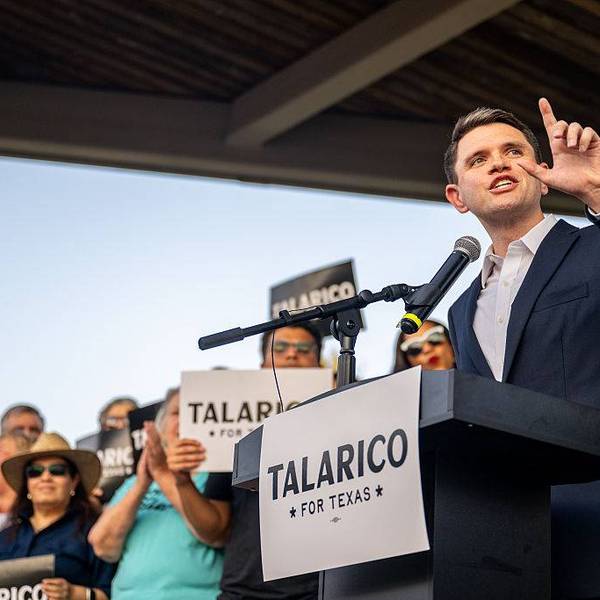Think of this as the year that democracy of, by, and for the billionaires shall not perish from the Earth -- not when we're on a new electoral playing field in a political world in which distinctions are no longer made between unlimited money and unlimited speech. In other words, these days, if you have billions of dollars, you can shout from the skies and the rest of us have to listen. If, as Steve Fraser points out today, we've been witnessing the return of "family capitalism on steroids," nowhere has it been bigger than in American politics, aided and abetted by that ultimate family institution, the Supremes (and I'm not, of course, talking about the classic Motown group).
We're still almost two months from the midterm elections in which the Republicans already have the House of Representatives essentially wrapped up and ads for Senate races are zipping onto TV screens in "battleground states" at a dizzying pace. To fund those ads and other campaign initiatives, dollars by the millions are pouring into the coffers of "dark money" outfits in a way guaranteed to leave the record for spending on midterm elections in a ditch at the side of the road. We now have our first estimates of what election 2014 is going to look like as a billionaire's playground; and count on it, you're going to hear the words "record," "billionaire," and "ads" a lot more until November.
"Outside groups" have already spent $120 million on TV ads alone, more than half that sum coming from those dark-money groups that don't have to let anyone know who their contributors are. At the top of that shadowy list are six outfits linked to David and Charles Koch, the billionaire brothers from Wichita. Together, those groups have already sent a mind-spinning 44,000 ads into the politico-sphere in those battleground states, and the Kochs' Americans for Prosperity (AFP) leads the pack with 27,000 of them. In the end, AFP alone is expected to put $125 million into this year's midterm elections, a figure that should take your breath away and yet that's only a start.
Sheldon Adelson, of casino fame, may, for example, put $100 million of his $31.6 billion fortune into this campaign season, shuttling much of it through dark-money outfits, including AFP. On the liberal side of the spectrum, environmentalist and billionaire Tom Steyer has pledged to sink $50 million into campaigns to promote candidates ready to act on global warming (though there is little question that, in the billionaire sweepstakes, the right-wing ones are going to outspend the liberal ones, and Republicans outspend Democrats).
In all of this, you can see the urge of America's new crop of billionaires to "play god" at our expense and with our lives -- to decide for us, ad by ad, dark-money outfit by dark-money outfit, how we should organize ourselves politically. Historian Steve Fraser, author of Wall Street: America's Dream Palace, has rubbed elbows with many a billionaire -- on the page, if not in life. As he writes in his latest essay, "Playing God," from this country's earliest tycoons to the latest batch of family capitalists, he finds one overwhelming, unifying trait: a deep-seated belief, in a country that worships self- or family-made money, that the more billions you have, the more you should be listened to. In his upcoming book, The Age of Acquiescence: The Life and Death of American Resistance to Organized Wealth and Power, he explores how, in our second (even more) gilded age, others with little money also came to believe that, rather than resist it.



